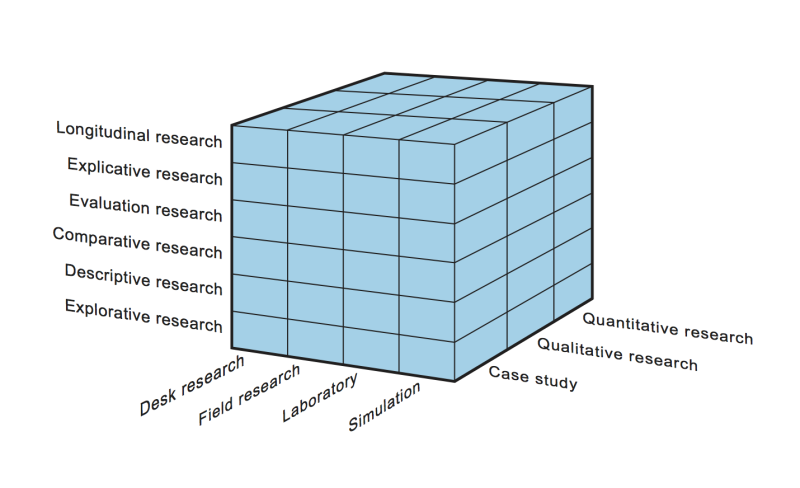- Evaluation research (the design of)
- Evaluation research is one of the six basic research designs
- Examples of research questions for an evaluation research
- What is so special for a research design
- Related topics to evaluation research
- Describing your research in a graph makes the research more easy to do and to understand. Read this manual:
- Mission

Evaluation research (the design of)
Evaluation research is a research in which a situation is compared with a situation before.
Evaluation research is one of the six basic research designs
When looking at the design of a research six types can be distinguished. One of them is evaluation research. This type of research will be described on this page.
It is always good to test if a change did make an improvement. If not, well then it is a waste of money and energy. One way to test it, is to collect data before the change is made and data after the change. This design is depicted in this graphical model:

It simply says: this research is done by collecting data on two moments. The first moment is before a change is made and the second is after the change. Though the model starts with a group, nothing has been said about the size of the group; the minimum could be even 1.
Examples of research questions for an evaluation research
Some research questions might be:
- Do we earn now more money than we did before?
- Do we get less complaints since we changed the helpdesk?
- Are our patients now happier than they were before the reorganisation of the division?
The list of questions is almost endless.
What is so special for a research design
Remarkable for comparative research is that the type of analysis is horizontal. If you look at your database, the respondents or objects are in the first column. The selected attributes are on the first line. Even if there are only two objects, the database should be organised this way. Now in comparing attributes for every person or object, the comparison is always horizontal.
Oops, did we make a mistake?
You might say “Well, that is it is nice, but we don’t make evaluations this way. We only have data at time 2, not at time 1.” Now the design looks like this:

In my opinion, this is a descriptive research. No comparisons can be made; no statistical test can be applied to compare means or percentages. It is just your opinion about the new situation. So it is not an evaluation research.
And how about this alternative?
You might say: “Compared to other companies, we improved quite a lot.” This statement is already much better, than the one before. To make a design of this, it looks like this one:

The problem still is the omission of the data on time 1. But, if there is a difference in time 2 between group 1 and 2, it might be caused by the change (the X). This will only be true if the situations in time 1 were the same for both groups. Because this is unknown, it is still hard to say if any improvement has been made due to the change between moment 1 and 2.
To make a real evaluation, an experimental research design should be used. This is explained elsewhere.
Read more about the longitudinal design in our paper: How to create research designs and conceptual models.
Related topics to evaluation research
- Design
- Explorative research
- Descriptive research
- Comparative research
- Experimental research
- Longitudinal research
Describing your research in a graph makes the research more easy to do and to understand. Read this manual:
Every research can be classified on three dimensions:
1) the research design
2) the location of data collection and
3) the number of cases.
Together they form the research cube. With this classification 72 types of research can be distinguished.




